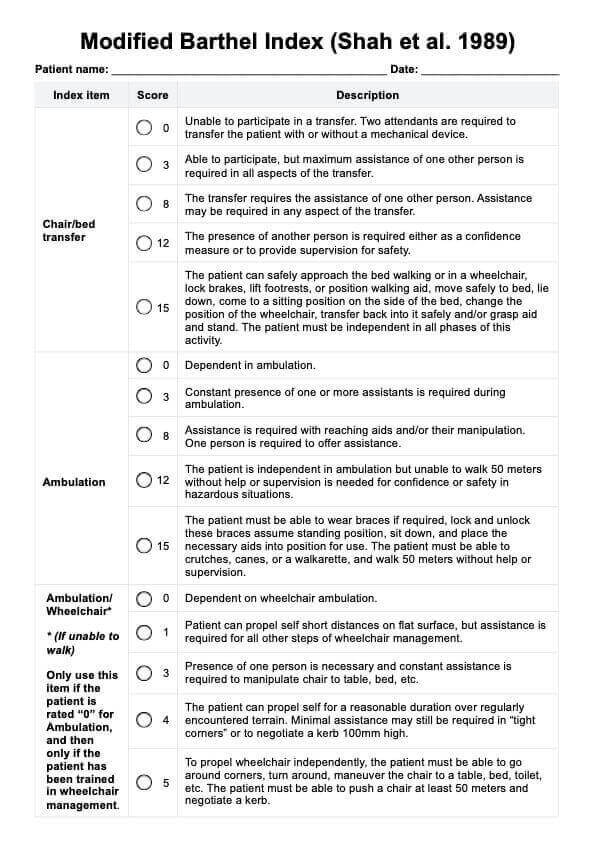The time required to administer the Modified Barthel Index (MBI) varies based on the patient's condition and the complexity of their activities of daily living (ADLs). Generally, it takes around 10 to 15 minutes to assess and score the patient's functional independence using the MBI. The duration may be influenced by factors such as the patient's cooperation, whether or not the patient requires supervision, and the thoroughness with how you conduct the assessment.

Modified Barthel Index
Measure your patient's functional independence using the Modified Barthel Index to determine what interventions and assistance you can provide.
Modified Barthel Index Template
Commonly asked questions
It would be best to use other tools to get consistent results and to cover more ground concerning the patient's functional independence, especially when it comes to balancing capabilities and fall risk.
For some patients, yes. It really depends on what negatively impacted them. There are patients who can only make a partial recovery for their functional independence. Some are unable to restore them at all. It's a matter of determining what they can work with if it can't be fully restored.
EHR and practice management software
Get started for free
*No credit card required
Free
$0/usd
Unlimited clients
Telehealth
1GB of storage
Client portal text
Automated billing and online payments











